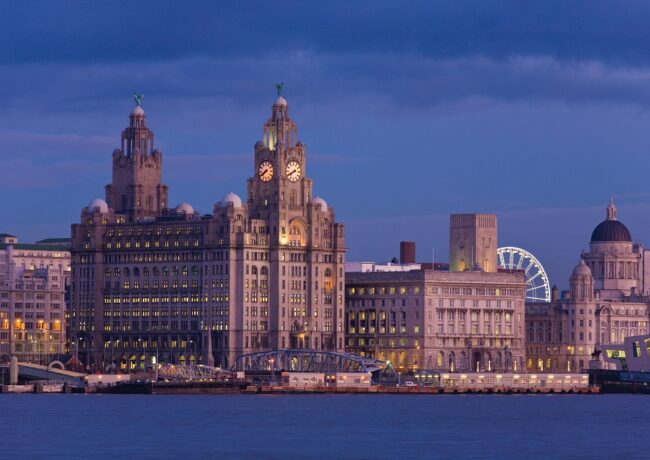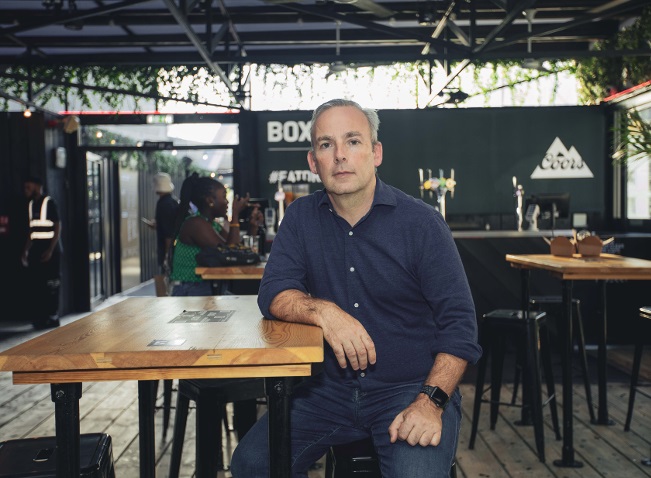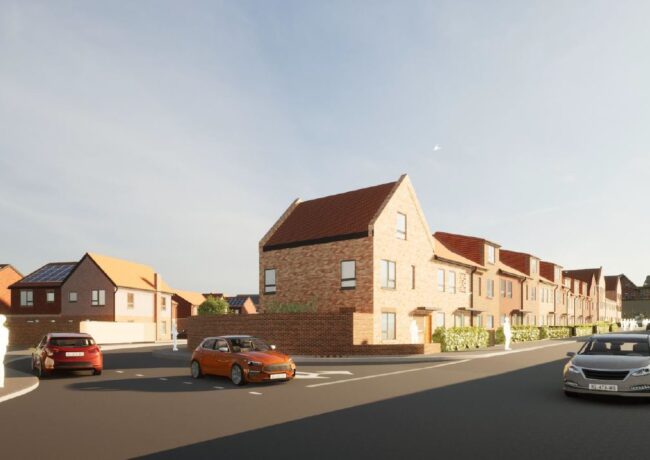A personal response to the Liverpool saga
Long-term resident Chris Clayton, director of Clayton Property, reflects on what the ongoing Merseyside Police corruption investigation means for Liverpool but why, ultimately, the city must dust itself off and move on.
 I can’t help reflecting on Liverpool’s current political difficulties, which, Covid-19-aside, seem very familiar and have reminded me of the city in the 1980s. But I would disagree with some commentators’ view that the city’s problems are the worst they’ve ever been.
I can’t help reflecting on Liverpool’s current political difficulties, which, Covid-19-aside, seem very familiar and have reminded me of the city in the 1980s. But I would disagree with some commentators’ view that the city’s problems are the worst they’ve ever been.
On my first day as a trainee residential surveyor in Liverpool in 1974, my boss told me I would need two things to do the job: a strong stomach and a sense of humour. A few weeks later, surveying a pretty grim house in Letsby Avenue seemed to prove the point!
I ended up being a commercial development surveyor, and, though not working in the city anymore, I do have many powerful memories of working in Liverpool in the 1980s. To name a few such memories: riots; Militant tendencies; Michael Heseltine; the Merseyside Development Corporation; almost zero private sector investment or interest; the city council selling off property and land to avoid bankruptcy; Boom (Business Opportunities on Merseyside) working hard to attract investment and fighting to correct the city’s terrible reputation as a place in which you would not want to live, work or invest.
I remember living with my family in Upper Duke Street, near the Anglican Cathedral, for a short time in 1989-1990 and feeling like we were the only people living in the entire city centre. It was a great place to live, all the same.
The national press loved rubbishing Liverpool (pun intended!). I remember taking the Sunday Times to task over their reporting of a council “bin strike”, when the streets were supposedly piled high with rubbish. They’d used a picture of a mound of building rubble on the Twelve Quays site – now Wirral Waters – and superimposed it on a picture of the Pier Head and the Liver Building to make their point.
I also remember trying to find an investor to buy the prime and fully let India Building on Water Street for less than £5m and nobody would touch it. It was Liverpool that they wouldn’t touch, of course, not the building.
The city was dire in those days – this once proud “second city of the British Empire” brought to its knees by years of industrial and maritime decline, accelerated by the physical destruction of World War Two, the loss of its identity as UK trade turned away from America and towards Europe, poor labour relations and a mass exodus of the population to the promised better life in the suburbs and New Towns such as Kirkby, Skelmersdale and Runcorn.
How could a city built for a million people survive with less than half that number? This was a massive decline.
Finally, I remember the brief resurgence in 1989-1990 when people working in the city were actually pleased to see the Mersey Tunnels clogging up as commuters came to work in increasing numbers. The city had recovered its rush hour and traffic congestion was good!
Jump forward 20 or 30 years and we see a different Liverpool in the 2000s: lots of new construction and investment; people coming to live and work in the city rather than leaving it; a City of Culture; World Heritage status; Liverpool One; the visitor economy; cruise ships; hotels; dockland regeneration; university expansions and the Knowledge Quarter.
So, why the big change? It seems to me that Liverpool has reinvented itself and found its new place in the world. It has moved away from being reliant on miles and miles of working docks (on both sides of the river) and labour-intensive factories and turned towards its new strengths of heritage and culture, leisure and tourism, and learning.
Those with their finger on the local pulse may tell me I’m wrong, but isn’t life much better these days? Aren’t labour relations better, local government more stable and isn’t it easier to attract people to invest, live, work and visit the city? As far as I can tell, today’s Liverpool has a very good reputation around the world, even if that has a bit to do with football and The Beatles.
Of course, there are some things that happily haven’t changed. Liverpool has always had a great “vibe” and scousers are friendly and welcoming, modest and self-deprecating. Their humour is famous, as is their optimism.
The Covid-19 pandemic is a one-off crisis but very damaging, and cities all over the world will need to adapt and recover. The latest political – and, it seems, property-related – revelations will probably make Liverpool’s recovery plan a little more difficult.
But let’s not forget how far the city has come from those very dark days in the 1980s. This isn’t the same city as it was then. Liverpool needs to sort out its current problems, dust itself off and move on.
Chris Clayton is director of Clayton Property





Totally agree. The possible corruption investigation very harmful, but nothing like as bad as the militant 80s. The city is also in a stronger place to come through these problems. So things will pause but soon recover. Covid, loss of EU funding and the central Government policy (seeming to favour their new red wall seats in Teesside and the North eEast) are bigger threats.
By George
Great article Chris! Liverpool won’t slide back into an 1980s decline as a result of the recent news but the city does need to lead by example and show it has rooted out corruption and bad practices otherwise it will turn major investors off doing business here.
By Ian P
Personally think a lot of the current problems are directly related to past problems. Problems and cultures which the city has never really been rid of, and why they have now sprouted up again. Too many cliches about ‘scousers’ and what they are supposed to be like does not help matters, either.
By JA
Totally agree Chris; well written!
By Cormac Harte
Sorry Chris but all Northern cities in the 1970`s were pretty grim,come to think of it large parts of London were too, eg Battersea, but the question is why ,when Liverpool has come so far, does the media never move away from the riots and strikes mantra , only the other day I saw stats showing Liverpool was the safest major city in the UK.
I doubt it was Liverpool`s choice that we have had to rely so much on tourism and hospitality to stabilise our economy, it`s just that we nearly always get overlooked when the government is deciding where the investment should go , or where the infrastructure is prioritised eg HS2 .
You obviously have a soft spot for Liverpool but we need better backing for our digital and media sectors so we can get the better paid sectors to flourish.
By Anonymous
Quite agree with all that. It’s still a great city. Now is the time for the council leadership to really step up and get some of these long awaited schemes happening. That’s the way it will prove that its current issues are just temporary blips. Manchester made great strides after the bomb with public private sector partnership really accelerating regeneration and these issues could be the chance for Liverpool to also do this and continue the good work that has been happening in the city for the last 15 years or so.
By Derek
Fully agree. The council for all its current difficulties is just one part of the regeneration picture. If the current situation tells us anything it may be that other bodies and partners should come to the fore without the sometimes restraining or unhelpful hand of the council holding things back.
By Mark Gilbertson
A fair and balanced article. It’s pretty outrageous that some are comparing the current situation to the 1980s. I suspect those who are doing this are seeking to intentionally undermine the city. There are no comparisons whatsoever. Liverpool’s economy is fundamentally stronger now than it has been for sometime. Two of its key sectors – the port and knowledge economy – are doing well and will provide the platform for future growth. I am confident that the visitor economy will rebound within time too; Liverpool has far more to offer than any of the larger English cities outside of London in this respect.
By Daniel
Good sentiments Chris, but to day that the 80s have been left behind is to overlook who else was picked up with Anderson. History casts a long shadow.
After very promising start to the century, in terms of all important commercial investment we are very much back in the doldrums. If you aren’t moving forwards, you’re moving backwards.
By Mike
The investigations especially now that the government have intervened will rumble on for a very long time and along with the litany of unpaid investors on developments appearing in the news cast a very long shadow.This has come at a particularly bad time as next year there will be inevitable interest rate hikes and huge numbers of jobs lost when the magic money printing machine runs out and the bill for COVID has to be paid somehow. Liverpool will of course survive but investment on the scale we have seen in the last 10 to 15 yrs will be a thing of the past. It will affect all cities but some more than others.
By Realist
A good reflection on our city . Good reading, positive and a good understanding of our city ,Thank you ..
By Victoria Forster
As someone who returned home to liverpool in 1985 I’ve seen first hand the change the reaction of some of my frends at that time were are you doing the right thing we had 3 young boys at that time being original from Toxteth I new what unemployment poverty an bad housing was all about but believed that liverpool would be a good place to live bought a new build in city suburb and have lived through the city’s resurgence which has been great have seen employment grow investment grow lots of new build lots of city investment we have a large amount of students who never go ho after there degree they stay its very popular as a visitor destination even now latest announced investment new flannels 7 floor store new film studios
And smaller investments ie bars and restaurants my belief is that liverpool will bounce back from this pandemic faster than most city’s as we have the will to do so there’s a inbuilt pride in the city from its population to investors its still a safe place to invest we will just move on from the current shadow cast on property investment
it’s no problem we’ve had bigger hurdles in the past
By Vincent
Liverpool is amazing
By Anonymous
Agree it’s essential that the investors are reassured that Liverpool’s culture is more dynamic and forward thinking.
By TJL
That was a really balanced article devoid of the usual emotion and overarching sentimentality often associated with us.
Unfortunately Liverpool and militant, or at least the hard left, is almost a continuing axiom. However, whilst proselytising about the rights of the working class, the underpaid and the wrongs of the gig economy, its apparent many of the so called Liverpool left continue to have their snouts in the trough and fear the transparency and forward thinking that would ultimately enable Liverpool to continue to thrive as a key city in the so called ‘Northern Powerhouse’.
Liverpool’s geographical location and the fact it has a highly operational but under-utilised port is testament to the lack of vision those leading its charge, have continued to demonstrate. We must not make the same mistakes we have in the past, we’re the only opportunities for our youth incorporated them getting ‘… on their bike’, to seek employment elsewhere.
The student economy, whilst part of the lifeblood of city, can not solely be responsible for much of our city centre construction activity, and nor can Liverpool thrive and prosper on its proud culture and heritage; football, the Beatles and stag and hen do’s. It desperately needs some of the levels of city centre employment enjoyed by the likes of Manchester; Leeds; Bristol and of course London. However, it will only be by demonstrating that we are open for business as well as technologically forward thinking, that we can attract the right type and levels of investment we need to continue the growth trajectory.
Make no mistake, post Covid will be an inter-city beauty contest for investment: this city rightly deserves a discernible piece of that and should be able to demonstrate both it’s political integrity and transparency in helping achieve it.
By KS
We need balanced investment. We have been treated as a dormitory town and a change of leadership needs to be strong enough to rise up and challenge the status quo.
By Michael McSpeke